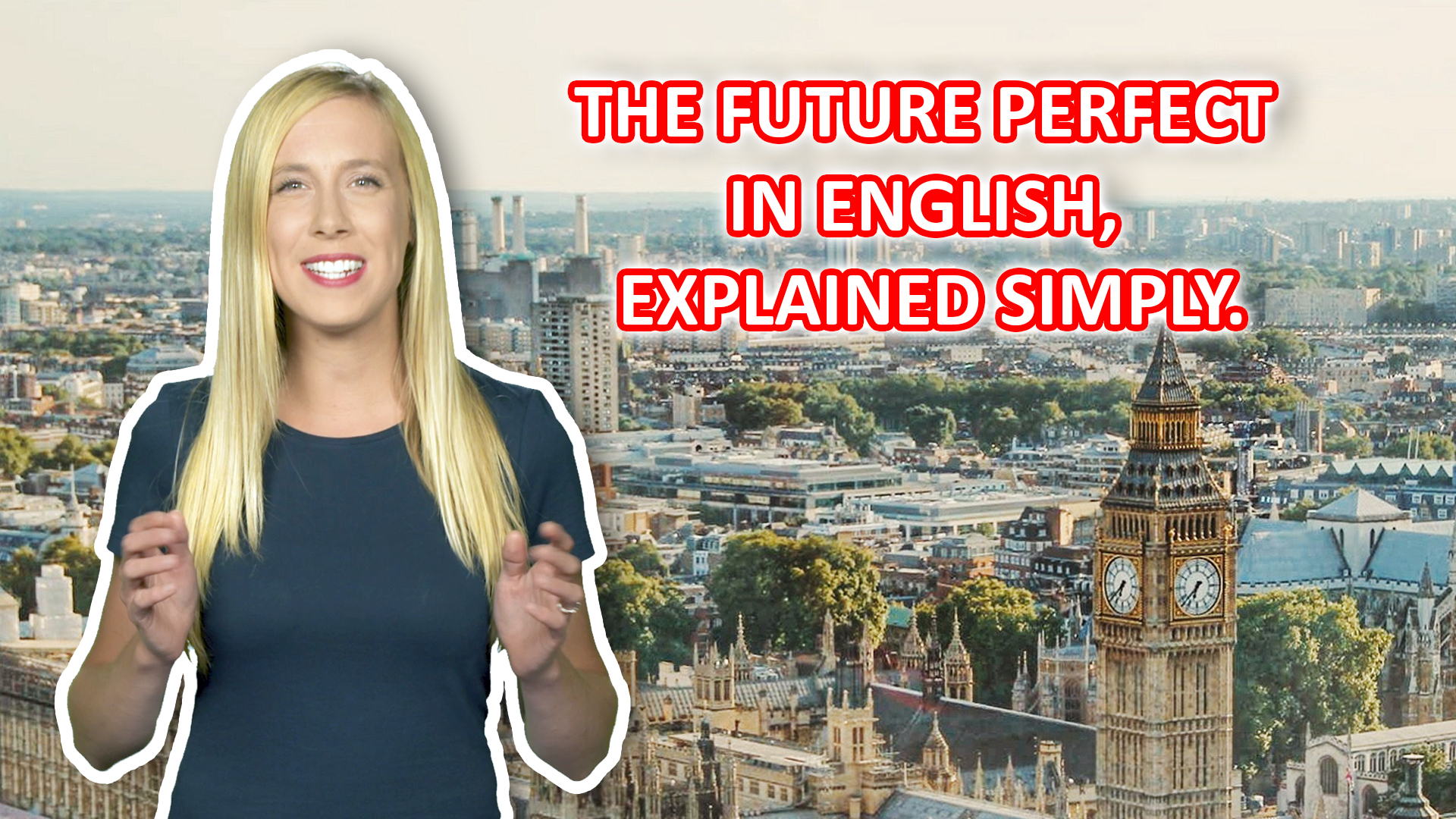The future perfect in English
The future perfect is one of the four main future tenses of the English language along with the future simple, future continuous and future perfect continuous.
We use will have + past participle to form it, so for instance
“will have eaten”
“will have seen“
“will have driven“
“will have spoken” and so on.
When do we use it?
We use it to describe an action that happened before another action or time in the future.
Let’s start with some really easy examples: “I will have brushed my teeth before I go to bed.”
The first future action which happened is “will have brushed my teeth”, this happened before going to bed, so it’s the future perfect!
FUTURE PERFECT HAPPENS BEFORE ANOTHER FUTURE!
Here are some more examples:
“I will have eaten dinner before I brush my teeth.”
You will eat dinner before you brush your teeth. Eating dinner is the first future, future no. 1 and brushing your teeth is the second future, future no. 2.
So ‘will have eaten’ dinner is the future perfect!
Look at these examples:
We can see that the first action completed earlier is used in the ‘future perfect’.
Look at the diagram below.
David jogs every morning between 8. to 8.30
You want to phone him at 8. He says ‘No, I will jog at 8’. It means he will start the action.
You want to phone him at 8.15. He says ‘No, I will be jogging at 8.1.5’. It means he is in the middle of the action.
You want to phone him at 8.30 or after then. He says ‘OK, I will have finished jogging by then’. It means he is at the end of the action or completed it.
The future perfect can also be the future form of the present perfect when it (present perfect) is used to describe an unfinished action.
For example:
John came to London in January. So in March John would say ‘I have been in London for 2 months’ (present perfect for an unfinished action).
In March he can say ‘By May I will have been in London for 4 months.’
Below we have ten examples of the future perfect along with future 1 (which is the future perfect) and future 2, the second future which is after the future perfect action or event.
- I will have cleaned my room before my mum comes in. (Future 1: clean the room, future 2: mum comes in)
- Martin will have completed his homework before the deadline. (Future 1: complete the homework, future 2: deadline).
- I think humans will have started living on Mars by 2050. (Future 1: started living on Mars, Future 2: 2050)
- Do you think the world will have been destroyed by the year 3000? (Future 1: world destroyed, Future 2: 3000)
- Give the teacher the homework before 3 pm because by then he will have gone home. (Future 1: teacher goes home, Future 2: 3pm)
- Eat the food before 1pm, it will have gone cold by then! (Future 1: food goes cold, Future 2: 1pm)
- They will have prepared hard for their exam before they start it. (Future 1: prepare for the exam, Future 2: start the exam).
- I will have finished my phone call with David before my meeting with the manager. (Future 1: finish phone call, Future 2: meeting with manager).
- Simon will have visited Paris before she visits Berlin (Future 1: visit Paris, Future 2: visit Berlin)
- Oil will have run out by the year 2120. (Future 1: oil runs out, Future 2: year 2120).
Please watch the video to help you!






Hi dear , I want to improve my skills , thanks a bunch